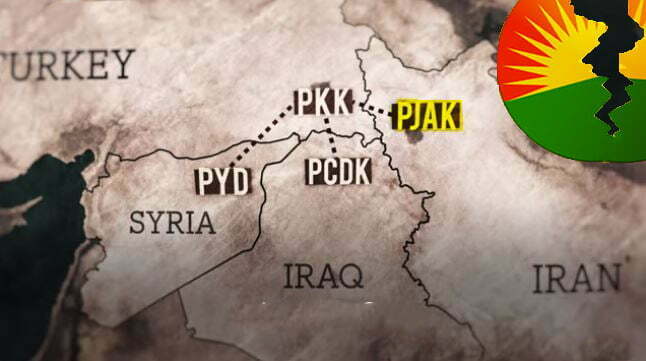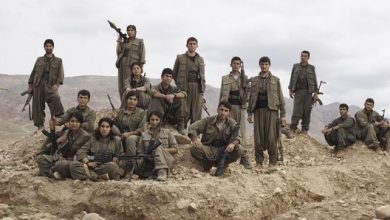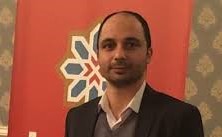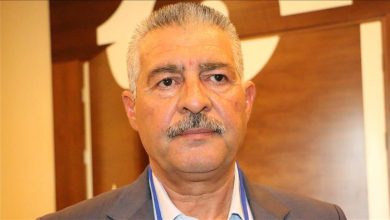In an interview with Iranian Kurdistan Human Rights Watch, Mustafa Kemal Erdemol, a Turkish writer and international relations expert, emphasized that despite placing the PKK on its list of terrorist organizations, the West exploits the group as a tool of leverage against governments. He also expressed concern about the direct ties of some Kurdish groups with Israel and warned of the consequences of this cooperation.
In every country, there can be disagreements between different ethnic groups, social classes, and governments, often stemming from the failure to uphold the rights of those groups. However, it is crucial to note that foreign powers, especially during times of political and social instability, try to “fish in troubled waters.”
These powers fuel existing complexities by providing arms to armed groups and using them for their own interests. In this context, groups like the PKK become a tool for pressuring governments, a situation that not only escalates tensions but also undermines efforts to achieve peace and stability in the region.
In this regard, we have conducted an interview with Mustafa Kemal Erdemol, a Turkish writer specializing in international relations and foreign policy, and an expert commentator for the country’s news networks. The full transcript follows:
The PKK and Its Branches: An Armed Network in the Region
Question: From your perspective, what kind of structure do the PKK and its branches (in Iraq, Syria, and Iran) have? Can they be considered a decentralized terrorist network?
Answer: It is clear that the PKK gradually expanded its activities. This is true for Turkey. The group’s expansion of influence has been somewhat more difficult in Iran, but outside of Iran, the PKK has a significant presence in Turkey, Iraq, and Syria.
In the three countries I mentioned, particularly in Turkey and Iraq, they have a considerable presence. I can say that they operate as an armed group. I prefer not to use the term “terrorist” because such labels should be defined by governments.
Europe’s Contradiction: Official Ban, Unofficial Support
Question: Why, despite this group and its branches being on the terrorist lists of the US and Europe, do they still have offices and hold meetings in these same countries?
Answer: Yes, that’s correct. Even though the group’s activities are officially banned in European countries, they continue to organize under the guise of cultural activities. In other words, we know that the Kurds who are active in European countries under the pretense of cultural work are members of the PKK, but they do not officially introduce themselves as such. They participate in cultural activities and are seen as associations carrying out these activities, thereby skirting the prohibited list.
This means that Europe indirectly supports the PKK and similar organizations, even if they are banned. Yes, they are on the prohibited list, but European countries are looking for ways to use the PKK indirectly behind the scenes. In reality, Europe continues to indirectly support the PKK based on its political objectives.
Kurds: The Primary Victims of PKK Violence
Question: The Kurds of Iran and Turkey have been the biggest victims of the PKK. In your opinion, what is the relationship between these groups and the real demands of the Kurds in these countries?
Answer: Kurds in Iran and Turkey have been harmed by the PKK’s actions. Of course, one should not forget the restrictions imposed by some governments, especially in Turkey, Syria, and Iraq. The PKK’s pressure on the Kurdish people to comply with the group’s policies has also been excessive.
However, overall, I must emphasize that some governments have shown a suppressive approach. In response to this behavior by governments at different times, this segment of society—the Kurds—generally resorts to violence to express their demands.
It should not be forgotten that some governments have adopted harmful policies against the Kurdish community. It is true that armed activity has caused significant economic losses for the Kurdish people in both countries, but it should not be forgotten that groups that resort to arms can also achieve political gains.
Let’s highlight this point. Perhaps it has not been the case in Iran, but in Turkey, significant steps toward achieving political gains have been taken by these groups. This is because armed struggle can lead to political achievements. For instance, in Turkey, the pressures from the PKK’s armed activities have forced the government to pay attention to Kurdish demands and, in some cases, take steps to improve their situation.
However, these achievements are often accompanied by heavy human and social costs, and violence and extremism remain as unintended consequences of this type of struggle. Ultimately, it should be noted that the real demands of the Kurds require a peaceful and diplomatic approach to achieve sustainable and just solutions.
The West’s Double Standard on Terrorism
Question: Why do some Western governments consider the PKK to be a terrorist organization on one hand, but on the other, provide it with room for activities and even cooperation?
Answer: As I said, Western countries have a double standard on this matter. While they ban these organizations, they support them behind the scenes to use these groups as leverage against countries they have relationships with.
The West indirectly supports the PKK, but it does not do so publicly. Western countries provide refuge to these groups, enable their activities, and… if necessary, use them for their own interests. This is one of the things we know very well about European and Western countries.
Turkey’s Role in Peace Projects
Question: What has been Turkey’s role in the peace projects and the disarmament of the PKK? Will this process be successful?
Answer: As you know, Turkey has entered a peace process with the PKK. A commission has been formed as part of this process. This commission is trying to establish peace. The future of this process is uncertain. Although it is referred to as a “resolution process” in public circles, the government in Ankara has not yet given it an official name.
Ties of Kurdish Groups with Israel and the US
Question: How do you evaluate the relationship of major powers, especially Israel with PJAK (the Iranian branch of the PKK), and particularly the US with the SDF in Syria?
Answer: We see that Kurdish groups in Turkey, Iran, and Syria (especially in Syria) have direct ties with Israel.
What I mean is that Kurdish organizations, instead of reaching agreements with the current governments in the countries where they are present and with the people they represent, are cooperating with the region’s ominous element, Israel.
Of course, this is unpleasant because these groups have immediately become the reserve forces of the US and Israel in the region. They are not afraid to say this, so it seems that whatever Israel wants to do in the region—even in Turkey or Iran—it will do through these groups.
It is necessary for governments to pay more attention to the demands and certain sensitivities of the Kurdish community. Perhaps in that case, these groups would prefer to cooperate with their own governments instead of with Israel and the US.
Abdullah Öcalan and the Disarmament Issue
Question: Can Abdullah Öcalan’s message about disarmament really influence all PKK branches, or do these branches effectively operate independently?
Answer: When Abdullah Öcalan decided to disarm the PKK, he thought that this action would be carried out in all organizations under his influence. However, the structure of the YPG-PYD in Syria is an independent organization.
They say: “We support Abdullah Öcalan’s peace initiative, but we will not lay down our arms because we have no problem with Turkey; we are fighting our own opposing forces in Syria.”
The situation of minority rights in Syria has also made them concerned. Look at how forces affiliated with al-Joulani acted against the Druze and Alawites in Suwayda in the south and on the Syrian coast.
What can be concluded from this? It seems that Öcalan does not have the influence on Kurdish structures that is believed. Even if he does have influence, he may not want it to be effective. Perhaps this is a tactic.
This is a decision made for Turkey; he must think that the Syrian Kurds will decide for Syria. Therefore, the decision he made in Imrali about the PKK could directly affect the presence of Kurds in all four parts of the country.
Governments’ Responsibility Towards Victims of Terror
Question: What is the responsibility of governments towards victims of terror, and what policy should they adopt towards armed Kurdish groups?
Answer: Governments are obliged to pay attention to the victims of terrorism, those who have suffered economic and human losses, and to cover the cost of these damages.
There is no doubt that nothing can replace the loss of life, but some economic damages can be compensated, and governments, especially Turkey and Iran, have the power to do so. These issues are solvable.
Therefore, the people are the ones who suffer the most from the process you describe. Have governments taken any steps or created programs in this regard? I am not sure, but the government should stand with the victims.
Final Message to the International Community
Question: If you had to say one thing to the international community, what is the most important action that must be taken to end the violence of the PKK and its branches?
Answer: Do not support blind terror and violence. You might agree with it and understand it, but I still insist that you do not allow armed action or terror.






